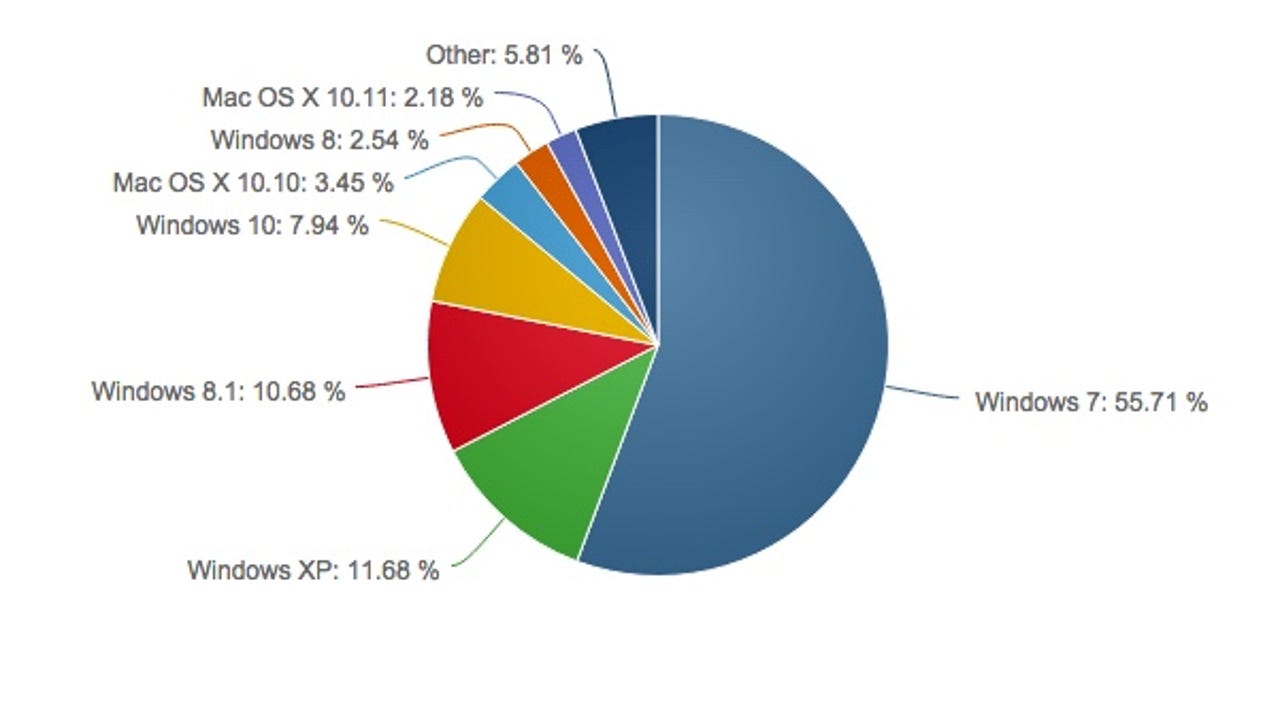Windows 10 growth sluggish as Windows 7/8.x users stick with their OS


The monthly desktop operating system usage share figures are in from NetMarketShare and they show that Windows 10 growth is slowing down as Windows 7 and Windows 8.x users stick with their operating system.
Whenever there's any discussion related to usage share there's a tendency for people to focus on the minutia as opposed to the bigger picture. As opposed to focusing on fractions of percentage points (which I will include for those who like such things) I prefer to look at broader trend patterns.
This is what happened during October:
- Windows 10 usage grew slightly (going from 6.63 percent to 7.94 percent, up 1.31 percentage points). This is a slowing down compared to the growth over September (where Windows 10 usage share grew by 1.42 percentage points)
- Windows 7 runs more than half of all computers, and over October it only dropped by a fraction of a percentage point (it currently stands at 55.71 percent, down 0.82 percentage points)
- Windows 8 and 8.1 users just aren't migrating at all (cumulative the usage share for this OS is at 13.22 percent, down only 0.10 of a percentage point)
- Windows XP usage is virtually static too (currently standing at 11.68 percent, down 0.53 percentage points)
Stats released by StatCounter for the month show similar trends.
Back when it was revealed that Windows 10 would be a free upgrade, I would have wagered that adoption would be far more aggressive (after all, when you look at iOS, OS X, and Android adoption, it seems like people love getting free stuff). But the trend suggests that this isn't the case when it comes to Windows, and this is despite the fact that Microsoft has nagged and cajoled users into "registering" in advance for Windows 10, and then aggressively pushed it to those who showed little interest in it initially.
There's clearly something behind this inertia, and I don't think that forcing users to upgrade will help. Microsoft needs to address the reason (or reasons) behind why consumers feel that it's not worth taking Microsoft up on their offer of a free upgrade.
Add to that the fact that Windows 10 isn't a bad operating system. Sure, I'm still coming across some performance and stability bugs but hopeful that the Threshold 2 update coming this month will help, but there's nothing showstopping.
See also:
Run Disk Cleanup after upgrading to Windows 10 to free up storage space
- A video tour of my favorite tools for building and repairing PCs and electronic devices
- Fix Windows 10 issues with FixWin for Windows 10
- How to disable Windows 10 Start menu ads
- Your PC stuck in Windows 10 "reschedule or upgrade now" limbo? Here's a fix
- Windows 10 upgrade nags become more aggressive, offer no opt-out
- What you can - and can't - legally unlock or jailbreak